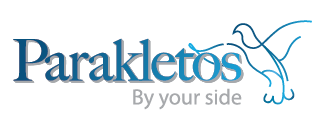Basic Things to Know About ADHD
By: Rizaldy R. Ferrer, Ph.D.
Attention Deficit Hyperactivity Disorder or ADHD is a brain disorder affecting an estimated 9% of children and 4.4% of adults up to 44 years old, according to the National Institute of Mental Health (NIMH). It is characterized by a pattern of inattention, and hyperactivity and impulsivity that may significantly impair development and/or important areas of functioning


The pattern of inattention is manifested in difficulties in sustaining focus or mental effort, giving close attention to details, staying on tasks, following through instructions, forgetting to initiate or complete tasks, and organizing activities.

Behaviors that are considered hyperactive or impulsive includes fidgeting, leaving seat when remaining seated is expected, running about inappropriately, acting as if “driven by a motor,” talking excessively or blurting out thoughts outside of turn, and interrupting on others such as during games or conversations.
Just because an individual experiences these behaviors does not mean he or she has ADHD. It is important that any one struggling with inattention, hyperactivity and/or impulsivity should consult with a mental health professional such as a psychiatrist, psychologist or psychotherapists to determine an accurate diagnosis, if any; and to assist the person in learning ways to cope with the difficulties.
Treatments are available, but there is no known cure for ADHD. Nevertheless, the following interventions are beneficial to anyone with the disorder to live productively in the environment and to minimize the burden of the disorder.
There are medications to treat ADHD. Stimulants and non-stimulants are common types of medicines to help in reducing hyperactivity, impulsivity, and increasing focus and attention. An evaluation from a physician, particularly a psychiatrist is crucial in determining the medication regimen that is right for the individual and attain the best possible outcome.
When talking to a medical professional, the caregiver of a child or the adult with ADHD should describe the difficult behaviors observed or experienced in a period of time. The doctor may not notice all symptoms of ADHD during the visit, so it is important that adequate information is presented.

Psychological or behavioral therapies are also helpful to train the individual with adaptive techniques in order to manage the symptoms. For example, social and organization skills training can form new sets of behaviors that are more effective in interpersonal relationships and completing tasks, respectively. Cognitive-behavioral therapies explore the person’s pattern of, and teach ways to alternative thinking. For example, mindfulness practice such as meditation can help with training the mind to be focused.
Interventions are not just for individuals with ADHD. Family members and other stakeholders need to learn skills that are helpful in dealing with loved ones with ADHD. The NIMH emphasizes the importance of education and training. According to a previously reviewed article, “behavioral parent management training teaches parents the skills they need to encourage and reward positive behaviors in their children. It helps parents learn how to use a system of rewards and consequences to change a child’s behavior.”
Additionally, stress management training may be helpful for partners and/or parents of individuals with ADHD in increasing tolerance and reducing frustration, so that interactions are more effective. Lastly, support groups are always a good way to connect with and learn from others with resembling challenges. Find resources in your community or even online for meetings and forums.
If you need to help and referral, please do not hesitate to contact us. We are by your side at Parakletos.


